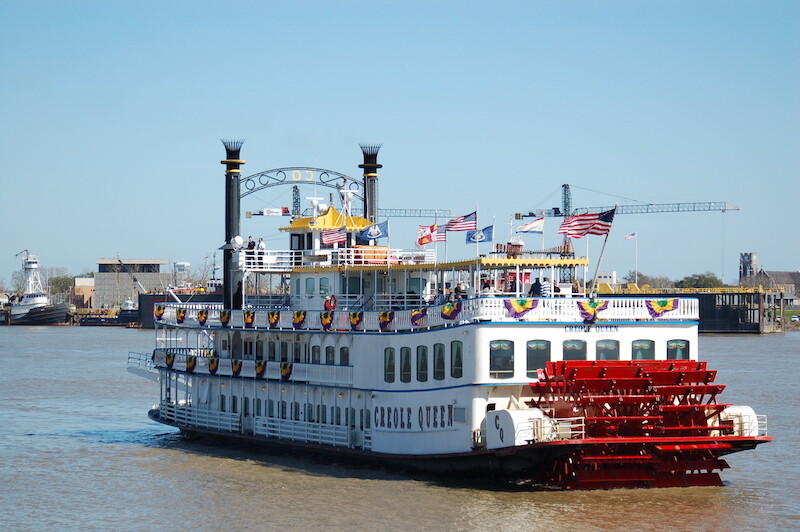Passenger vessel operators want the Coast Guard to consider a number of options as it weighs possibly requiring safety management systems (SMS) that would affect the whole industry.
They also say tools already are in place to reduce marine casualties, and, when existing rules are followed, vessels operate safely. More regulation is not necessarily a match for human error. And the cost to businesses, especially seasonal operators, could be steep.
The comments are in response to an Advanced Notice of Proposed Rulemaking (ANPRM) evaluating whether to mandate the systems on U.S.-flag passenger vessels. Long sought by the National Transportation Safety Board (NTSB), the move comes after several major marine fatalities — most recently the 2019 Conception dive boat fire that killed 34 people. Relatives and friends of those who died said an SMS would help save lives.
The Coast Guard wants answers by tomorrow — Tuesday, June 1 — to 22 questions ranging from the type of vessel to be covered to the economic impact of a rule and whether owners have seen any safety improvements using another type of SMS such as the Passenger Vessel Association's (PVA) Flagship, formally recognized by the agency in 2017.
PVA suggests the Coast Guard accept Flagship as an alternative, allow companies to implement the existing Streamlined Inspection Program (SIP), make the Coast Guard the primary inspector and auditor of the systems with third-party audits as an option not a mandate, make the system scalable since many operators are small businesses, and have a five-year inspection for certification.
Any SMS "will and does not guarantee flawless system implementation nor oversight," said Capt. Dave Anderson, director of operations, Fire Island Ferries, Bay Shore, N.Y. "A responsible owner/operator does not need an SMS to conduct a safe and efficient operation."
"Hiring one more employee to implement an SMS does not sound like a big deal, but for a small company such as ours, it would be a huge burden," wrote Capt. Kevin Stier, who with his wife, Carrie, operates the 149-passenger Riverboat Twilight, Scales Mound, Ill., which cruises the Upper Mississippi River. "We are currently having trouble simply finding bartenders and waitstaff, let alone an SMS 'outside expert.' "
He said he spent months at a shipyard helping to build the vessel and knows it better than anyone. "I am on the boat every day it sails. I walk the entire boat multiple times a day, and I know when something is wrong and I fix it," Stier said. Having a piece of paper saying he fixed it "will not help me be any safer. It's something I already know and have done for the last 35 years!"
Adding more administrative burden and regulation "to all small passenger vessel operators will increase the workload on those who do things properly, while those who do not will continue to operate on the fringe of compliance," said Capt. Chris Botsolis, port captain for Biscayne Lady Yacht Charters, Miami.
In a new regulation, the Coast Guard has to clearly lay out what it wants, he said. Rules that are easy to understand and interpret "would help speed up the launching and adjusting of an SMS to each specific company....The PVA flagship SMS did a great job of this for the PVA members."
SMSes are documented companywide procedures for ensuring safety in everything from vessel operations and equipment maintenance to incident responses and accident reports. The U.S.-flag passenger fleet includes about 6,500 active and inspected vessels, of which 530 already must have an SMS to meet International Maritime Organization (IMO) treaty obligations because they carry more than 12 passengers on foreign voyages, the notice said.
"I believe that all passenger vessels, professionally operated, regardless of size, make, model or construction date should be required to maintain an SMS. If passengers are on board, an SMS should be in place," wrote Margaret Strom, whose husband, Dr. Ted Stephen Strom, died on the California dive boat.
An environmental consultant whose work includes helping businesses comply with government regulations, Strom said she didn't see an SMS "as being much different from these environmental health and safety plans except for the fact that vessels operate on water potentially far from resources that could provide assistance in an emergency."
The NTSB said lax oversight by Conception's owner, no roving watch as required by the Certificate of Inspection (COI), insufficient smoke detectors and poor escape routes contributed to the fire. And it faulted the Coast Guard for not requiring SMSes on all U.S.-flag passenger vessels.





